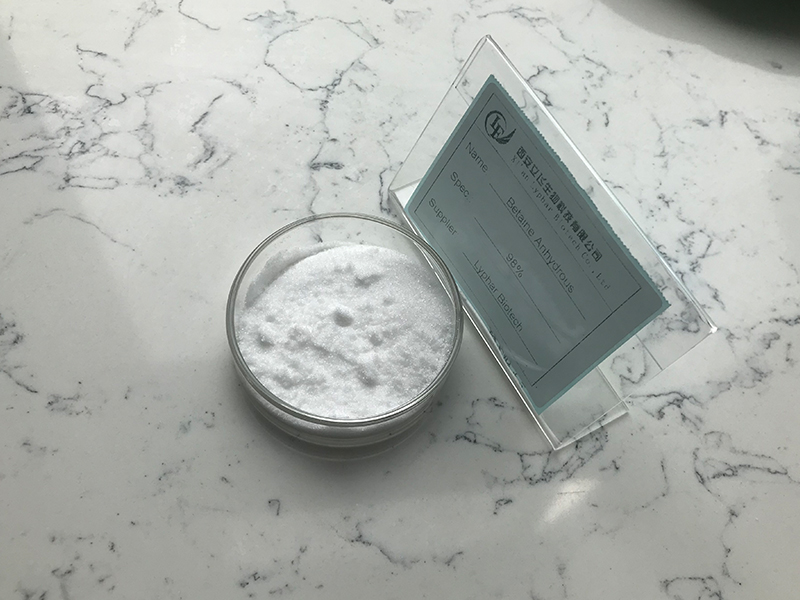Effectiveness of Betaine
Betaine, also known as trimethylglycine (TMG), is a compound derived from the nutrient choline. It plays several important roles in the body, primarily in methylation processes and as an osmolyte, helping cells maintain water balance. It is commonly used for:
- Improving Athletic Performance:
- Betaine supplementation may enhance exercise performance by increasing power output, muscle strength, and endurance, possibly through improved muscle protein synthesis and creatine production.
- Some studies suggest a modest improvement in body composition (increase in lean mass and decrease in body fat) after regular use during resistance training.
2. Liver Health:
- Betaine is used to treat non-alcoholic fatty liver disease (NAFLD) and alcohol-induced liver injury because it supports the liver’s ability to process fats and detoxify harmful substances.
- It helps reduce the accumulation of fat in the liver and is used for treating conditions associated with high homocysteine levels (hyperhomocysteinemia), which can damage blood vessels and increase cardiovascular risks.
3. Homocysteine Reduction:
- Betaine is particularly effective at lowering homocysteine levels in the blood by donating methyl groups for homocysteine metabolism. High homocysteine is a risk factor for cardiovascular diseases, so lowering it can potentially reduce these risks.

Side Effects of Betaine
While betaine is generally considered safe when taken in appropriate doses, it can cause some side effects, especially in higher doses or sensitive individuals. These side effects may include:
- Gastrointestinal Discomfort:
- Nausea, upset stomach, and diarrhea are relatively common at higher doses (e.g., over 6 grams/day).
2. Body Odor:
- Some people may experience a “fishy” body odor due to trimethylamine production, a byproduct of betaine metabolism, particularly in those with genetic conditions like trimethylaminuria.
3. Increased Cholesterol Levels:
- Betaine can raise total cholesterol and low-density lipoprotein (LDL, “bad cholesterol”) levels in some individuals, so people with cholesterol concerns should monitor their lipid profile during use.
4. Hypoglycemia Risk:
- There are some concerns that betaine may lower blood sugar levels, so caution is advised in people with diabetes or hypoglycemia, as it may increase the risk of low blood sugar.

Special Considerations and Contraindications
- Cardiovascular Conditions:
- Betaine’s homocysteine-lowering effect is beneficial for cardiovascular health, but its potential to increase LDL cholesterol levels makes monitoring lipid profiles important.
2. Kidney Disorders:
- Betaine should be used cautiously in individuals with kidney disease, as it affects electrolyte balance and osmolyte function in cells, which could potentially burden impaired kidneys.
3. Pregnancy and Breastfeeding:
- There is limited evidence on the safety of betaine in pregnancy or breastfeeding, so it’s advised to consult with a healthcare provider before use.
4. Trimethylaminuria (Fish Odor Syndrome):
- Individuals with this rare genetic disorder should avoid betaine supplementation due to the potential for excessive trimethylamine production, which causes a strong fishy odor in sweat, urine, and breath.
5. Interactions with Medications:
- Betaine may interact with medications like methotrexate (used in cancer treatment) and other drugs affecting methylation pathways, so medical supervision is recommended for individuals on such therapies.
In conclusion, betaine can be an effective supplement for improving athletic performance, supporting liver function, and reducing homocysteine levels, but it should be used with caution due to potential side effects and interactions. It is always recommended to consult with a healthcare provider before starting betaine, especially for individuals with underlying health conditions.
